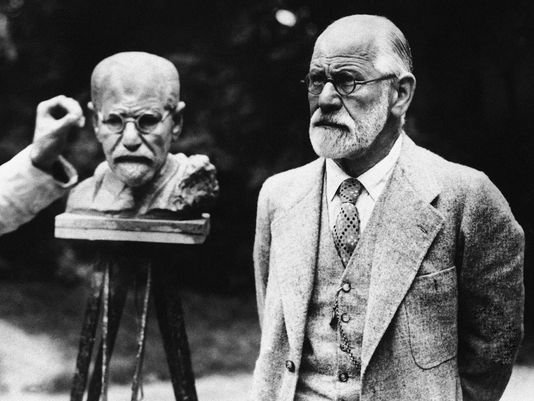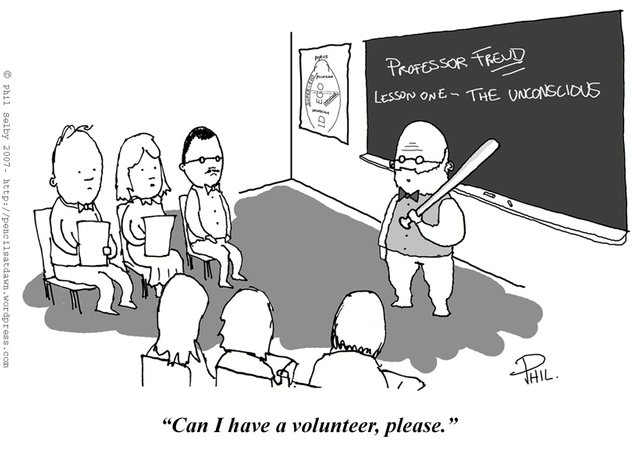Defending Sigmund Freud: An Analysis Of The Father Of Modern Psychology
If there were one name that is inseparable from the field of psychology in the vocabulary of the public, then that name would be arguably Freud. The thick-accented, bearded Austrian psychiatrist has become almost the caricature for psychiatric practitioners across mediums of television and movies. Comedic impersonations of the psychiatrist or psychologist are almost incomplete without borrowing at least one characteristic of Sigmund Freud. And among that confluence of caricature and comedy seems to lurk the implicit air of dismissal that has become associated with the father of psychoanalysis. In writing this piece, I hope to combat some of the misrepresentation that has come so attached to such an influential figure in the history of modern psychology.

"Freud was Wrong"
It’s here that the popular criticism of Freud has achieved perhaps a majority of its momentum. You don’t have to comb Internet discussion very thoroughly to witness the confidence with which this criticism is presented, the suspect support of introductory psychology looming in the background. For students beginning their foray into the field, Freud represents the perfect tool for instruction: his theories not only lack the scientific rigor with which the nascent psychology continues to establish its credibility among the sciences, but they also exist without an iota of falsifiability. Coupled with an unwavering fascination with sex and explanations based in that construct, it is not entirely surprising or even undeserving that Freud has been the subject of ridicule.
Forgotten in the presence of his eccentricities and often unscientific approach to psychology, however, is his achievements and contributions to the field. For the times his ideas were “right,” the field found itself introduced more seriously to concepts that have informed much of psychological research and study today. The gravity applied to the unconscious mind and psychological coping mechanisms—concepts now inescapable in mainstream discussion of psychology—represents perhaps one of Freud’s most important contributions. The enormity of these concepts and other more credible ideas of Freud is often lost nevertheless by his failures, which are notwithstanding undeniably plentiful.

Freud’s Achievements
Incontrovertible and perhaps most popular among derisions of Freud is his infamous fascination with sex and sexual explanation. The very subheading of this section would probably have Freud’s mind storming with ideas and ostensible insight into the mind of this author. Tongue-in-cheek aside, Freud’s fascination with sex represents the microcosm of a much larger and more important contribution of his work. Here I refer to the simple act of discussion, which propelled psychology—especially its clinical realm—to the modernity we now take for granted.
At a time still very much entrenched in the faux pas of open conversation regarding sex, Freud was not only breaking those conventions, but also very much employing them in his discussions of the mind and human behavior. While bordering on what critics might deem obsession, his discussion of sexuality represents a venture into topics important to the human condition that had not received prior appropriate attention. On a larger scale, his open discussion of those topics can be viewed as representative of broader clinical contributions, which include greater acceptance of talk revolving around topics and emotions not typically expressed during the time.

Freud’s Biggest, Raging Achievement
While his achievements are certainly not limited to this brief discussion, there is one more in particular to which I must draw attention as this article comes to a close. In studying the mind and its unconscious elements, Freud emphasized the inextricable connection between, simply put, the child and its adult form. Here is where I believe Freud receives perhaps the biggest disservice in his casual dismissal. The effects of developmental stages on later behaviors, mental illness, and cognition have been an area of tremendous research and examination, which has often in turn informed theory, treatment methods, and even policy-making. In a time where this link seems almost insultingly obvious, it is seems forgotten that serious discussion of those developmental factors was in many ways begun with Freud’s investigation. This is not to say that such developmental intrigue has its origins with Freud, but rather that his work and discussion brought the issue under a microscope.

The Man, The Myth, The Man
As I hope can be seen from this brief discussion, the criticisms of Freud that seem inevitably to materialize upon his mention are not without counterbalance. His discussion of sex along with his interest in childhood experiences have been no doubt instrumental in the history of psychology as a field, bringing to its attention behaviors and topics arguably neglected. I have written this piece not to elevate Freud to a level of godhood or to cling desperately to now debunked ideas, but rather to provide a fuller picture to a man who has from my experience often been dismissed as a punch line. Psychology and its history are intense interests of mine; so if anyone has anything they want me to write about, please let me know!
i read somewhere that Freud was connected to the ruling oligarchy!
Beauty has no obvious use; nor is there any clear cultural necessity for it. Yet civilization could not do without it.
Sigmund Freud
The female patients he had that told him of the childhood sexual abuses they suffered from their father and friends fell on deaf ears with Dr Freud.
He did not believe such a thing was possible and went out of his way to destroy these women's minds. He believed they were pathologic liars so "treated" them for psychotic lying.
No doubt the poor women were daughters and nieces of some of his friends in Viennese society, but I don't think history records this.